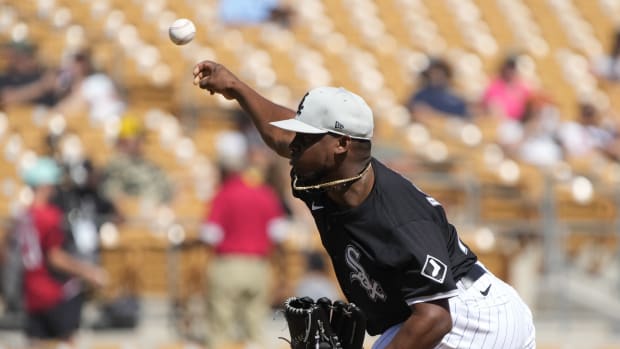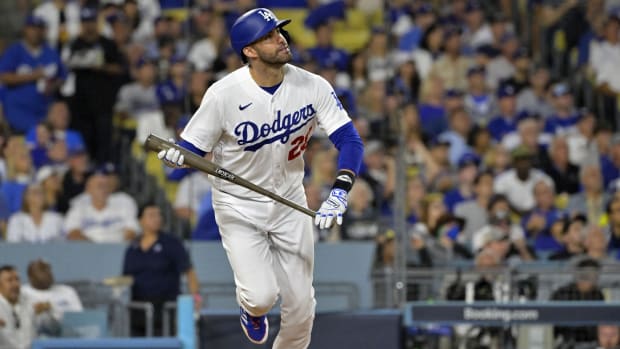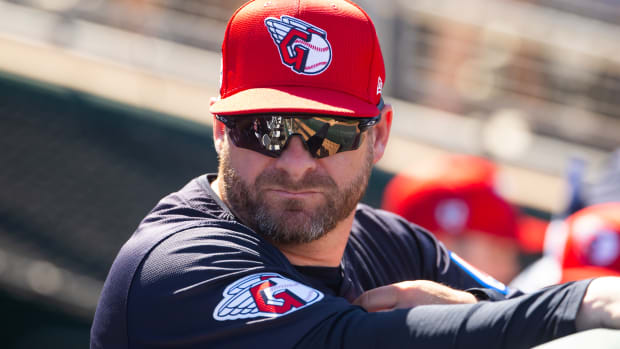Could Fans Sue Astros Over Sign-Stealing Scandal?
The allegation that the Houston Astros used electronic surveillance equipment to steal signs during their championship 2017 season could become a legal problem for the club and Major League Baseball.
As reported by The Athletic, the Astros are accused of surreptitiously positioning a camera in the centerfield area of the club’s home ballpark, Minute Maid Park. The camera recorded opposing teams’ catchers signaling signs to pitchers on the mound. Imagery captured by the camera was then relayed to a monitor near the Astros’ dugout. Astros staff reviewed the imagery live and loudly banged on a trash can in coded sequences in order to inform batters which type of pitch was coming. In essence, the alleged plot made it easier for Astros batters to hit.
The claim appears to be credible. The Athletic’s story relies on remarks by Oakland A’s starting pitcher Mike Fiers. Fiers, 34, pitched for the Astros from 2015 to 2017. The veteran righthander signed with the Detroit Tigers as a free agent in early December 2017, about five weeks after the Astros defeated the Los Angeles Dodgers in the World Series.
Former White Sox relief pitcher Danny Farquhar is also quoted as saying that his team detected a unique pattern of the Astros banging whenever a Sox catcher called for an off-speed pitch. Farquhar further explained that the Sox changed their approach to calling pitches in order to disrupt the Astros’ apparent sign stealing.
There is no obvious reason why Fiers or Farquhar would falsely concoct these claims—particularly since they were willing to go on-the-record with their names. Subsequent reporting by Sports Illustrated’s Tom Verducci highlights that “another former Astro” may have information to share. Meanwhile, video evidence seems to support the allegation. MLB is investigating the matter.
Sign stealing, electronic surveillance and MLB rules
While sign stealing is a form of rule-breaking or cheating, it is not entirely prohibited by MLB rules. As Verducci has written, signs can be stolen visually by a runner on second base, though MLB rules forbid stealing signs using any sort of device.
Use of technology to steal signs is not unprecedented, either. In 2017, two longtime American League East rivals, the Boston Red Sox and New York Yankees, accused one another of stealing signs through electronic surveillance. The Red Sox allegedly used Apple Watches while the Yankees supposedly relied on cameras by the club’s regional sport network, the YES Network, and a dugout phone. MLB eventually fined both teams. It’s safe to assume that if a few clubs are revealed to have stolen signs through technology, other clubs are doing the same and haven’t been caught.
To deter teams from relying on advances in technology to steal signs, MLB implemented new protocols for the 2019 season. Among other features, the protocols prohibit the use of non-broadcast outfield cameras from foul pole to foul pole. They also restrict the use of television monitors. The protocols attempt to deter misconduct by threatening to strip offending clubs of draft picks and international spending money.
Astros can stress that the alleged sign-stealing occurred before the 2019 protocols went into effect—but MLB might not care
The 2019 protocols were obviously not in place two years ago, when the Astros allegedly carried out their plot. MLB could nonetheless punish the Astros and its current and former staff. Under Article II of MLB’s Constitution, commissioner Rob Manfred has complete authority to find that a club is acting “not in the bests interests of” baseball. Manfred can then impose a range of penalties, including fines, suspensions, stripped draft picks and elimination or reduction of international spending money.
Given that MLB addressed the Red Sox and Yankees use of “high-tech” sign stealing methods during the 2017 season by merely fining both clubs, the Astros might insist that they should not incur a heftier punishment for engaging in a similar practice during the same season. Precedent, then, would favor the Astros.
Yet Manfred might regard the Astros’ alleged plot as more pervasive and, given that the Astros went on to win the World Series, more impactful, too. If so, Manfred could suspend or fine Astros general manager Jeff Luhnow, Astros manager A.J. Hinch and two former Astros—Red Sox manager Alex Cora (then bench coach in 2017) and New York Mets manager Carlos Beltran (then a player in 2017)—both of whom are rumored to have been instrumental in carrying out the Astros’ alleged surveillance.
Potential fan litigation
MLB doesn’t have complete control over the potential trajectory of the Astros sign-stealing controversy. The scandal could spawn lawsuits brought by people who attended Astros games in 2017 and who now believe that they were unlawfully deceived.
While Astros fans seem unlikely to sue over an alleged scheme that would have advantaged their preferred team, not every one of the 2.39 million people in attendance at Minute Maid Park during the 2017 season supported the Astros. Some, obviously, were fans of opposing clubs.
All it would take is for one of them to file a complaint in court in order for there to be a lawsuit.
Some potential claims appear to be time-barred under Texas law. Claims that depict the Astros and MLB as negligent may have expired. Texas applies a two-year statute of limitations for negligence and other personal injury claims. This generally means that once an injury occurs, a potential plaintiff has two years from the date of injury to file a complaint in a Texas court. If they fail to do so, the opportunity is permanently lost. Given that more than two years have passed since the conclusion of the 2017 World Series, tort-related legal claims centering on occurrences during the 2017 season are seemingly forfeited under a two-year statute of limitations.
However, there are legal arguments that sometimes work to effectively extend the applicable statute of limitations. Plaintiffs have argued that the applicable statute of limitations should not begin to run until injured persons have a credible opportunity to realize that they were injured. To that point, there is no plausible reason to believe that random people sitting at Minute Maid Park in 2017 knew of the electronic sign stealing and yet somehow MLB and the media had no idea. One could argue the statute of limitations should not begin to have run until Nov. 13, 2019, the date when The Athletic story published the story and gave notice to fans who attended games in 2017.
Alternatively, if the Astros’ alleged sign stealing practices continued into the 2018 season, plaintiffs could argue that the “harm” continued into a period within the two-year statute of limitations. This argument would be difficult to raise unless the suing ticket holder himself or herself was at games during both the 2017 and 2018 seasons.
Other types of claims under Texas law would clearly fall within the applicable statute of limitations. Texas applies a four-year statute of limitations for fraud and breach of contract.
Assuming a plaintiff could successfully raise claims within the applicable statutes of limitation, relevant claims would include the following: fraud; negligence; violations of the Texas Deceptive Trade Practices-Consumer Protection Act; breach of contract; detrimental reliance and tortious interference with contractual relations.
The core legal argument would be that fans attended Astros games with marketing and contractual assurances that they would witness a competitive contest between two MLB clubs when, in reality, one club had fixed certain outcomes.
To advance this theory, the fan would highlight how the Astros and MLB marketed the game as reflecting genuine competition. The fan might also point out that spectators rely on MLB’s numerous rules of play, the presence of umpires and the use of instant replay to feel confident that MLB games are legitimate contests.
Astros and MLB would be poised to defeat litigation, but litigation could still cause them problems
A ticket-based lawsuit would face long odds. Courts have consistently rejected the kind of reasoning detailed in the preceding section. The basic defect for fan lawsuits over occurrences during games is that tickets to games offer only a very limited legal promise: the promise to watch a game played between two teams from the vantage point of a particular seat.
That’s about it.
Fans who attended Astros games in 2017 saw them play different teams. The tickets didn’t offer pledges about the risk of sign stealing, be it through old-fashioned ways that rely on human eyesight and baseball smarts or newer ways that rely on technology and that seem more like cheating.
These points were apparent when a New York Jets season ticket holder named Carl Mayer sued the New England Patriots and head coach Bill Belichick in the U.S. District Court for the District of New Jersey over the Patriots running afoul of an NFL policy related to placement of cameras within stadiums. While all NFL teams record their opponent in hopes of gaining insight, the Patriots in 2007 placed a camera in a position that the NFL deemed inappropriate. The camera was used in a game played between the Patriots and Jets at Giants Stadium (where the Jets played their home games until 2010 when they moved to MetLife Stadium). The NFL severely punished the Patriots, including by stripping a first-round draft pick, and the controversy became known as Spygate.
Mayer, who brought a suit in hopes of it becoming a class action of Jets fans, argued that the Patriots had “violated the contractual expectations and rights of New York Jets ticket-holders who fully anticipated and contracted for a ticket to observe an honest match played in compliance with all laws, regulations and NFL rules.” The Patriots prevailed at the district court level and defeated Mayer’s appeal to the U.S. Court of Appeals for the Third Circuit. The judges reasoned that Mayer invoked legal rights that the Patriots did not owe him. Mayer, in other words, got what he paid for: the right to watch the Jets play the Patriots from his seat.
The same logic explains why New Orleans Saints fans who have sued over the terrible “no-call” during January NFC Championship between the Saints and the Los Angeles Rams won’t succeed: the fans received what their tickets promised. Also, imperfect and sometimes bad officiating is part of any sport that is dependent on referees and their split-second decisions.
A lawsuit could still prove disruptive for the Astros and MLB. This would be particularly true if a lawsuit advanced into the pretrial discovery stage, where the Astros and MLB would need to share emails and where club and league officials might have to testify under oath. A lawsuit could force MLB to explain why it didn’t know about the sign-stealing scheme when (it appears) dozens of people within the game knew. MLB might also be pressed to defend itself on whether it regards high-tech sign stealing with sufficient seriousness. Fans would be watching. So too would bettors who place bets on MLB games with certain assumptions about fair play.
Michael McCann is SI’s Legal Analyst. He is also an attorney and the Director of the Sports and Entertainment Law Institute at the University of New Hampshire Franklin Pierce School of Law.




































